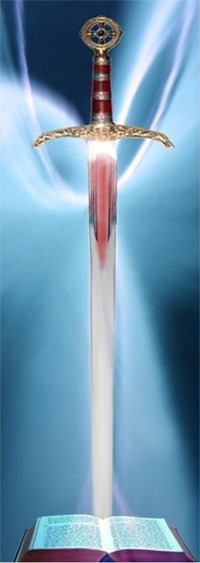Went out caroling last night with the youth and others from my church. A good time. I enjoy lending my voice to worthy causes.
It worries me, though, that a lot of today’s young people don’t know the traditional Christmas hymns (you know, the ones that talk about Jesus) as well as they seem to know “Rudolph, the Red-Nosed Reindeer” or “Rockin’ Around the Christmas Tree.” When we took a request from a carolee to sing “Rudolph,” the singing gusto went up noticeably, particularly from the youngest carolers.
I noticed that same trend last year at a St. Nicholas Day sing that we do with some friends. The younger crowd stumbled through the old Christmas hymns but were in full voice for the secular songs. Worst of all, despite the fact that the vast, vast majority of Christmas songs played in our own home are sacred, our son seems to stumble through those, while somehow knowing all the lyrics to “You’re a Mean One, Mr. Grinch.” This startles me because, as far as I know, he’s never seen The Grinch Who Stole Christmas. And to hear him singing that ubiquitous ditty about the Heat Miser and Cold Miser from A Year Without a Santa Claus, which I’m nearly positive he’s never seen, makes me wonder whether I should give him a tin-foil hat for Christmas.
Last night, I saw Rolling Stone magazine’s list of the Top 100 songs of 2007. After perusing the list, I quickly realized I’d finally reached geezerhood; I recognized less than a fifth of the artists on that list. Worse, I recognized not a single song.
A running joke in my family deals with my encyclopedic knowledge of all sorts of ridiculous facts, the kind of savanthood that would place me on Jeopardy! or Who Wants to Be a Millionaire.  In fact, my wife’s family heartily encouraged me to try out for Millionaire in its heyday. I saw one show, one early one featuring the million dollar question “How far is the earth from the sun?” a question I thought most second graders were supposed to know, then wrote off the show.
In fact, my wife’s family heartily encouraged me to try out for Millionaire in its heyday. I saw one show, one early one featuring the million dollar question “How far is the earth from the sun?” a question I thought most second graders were supposed to know, then wrote off the show.
At some point in that one show, they asked an earlier question about some rap group, and I thought that would be my Waterloo if I ever tried out. I used to have an extensive knowledge of popular music, but somehow that got petrified around 1995, and after that it’s been all downhill. And don’t even get me going on these one-hit hip-hop wonders that sprout up today.
Ironically, my father-in-law convinced me to attempt the syndicated version of Millionaire. My standard reason for holding that request at bay would be that I had no clue on who these hip-hop artists are, and inevitably I would get a question asking me about what the “Z” in “Jay Z.” is supposed to stand for and I’d be clueless. Still, the insistence wore me down.
When I finally called the contestant testing number, I sat patiently awaiting my first question. That question: “Rearrange the following letters to spell the name of this popular rap group.” I spent so much time laughing hysterically that I didn’t even hear the letters. So I bombed on the first question. You know, that very fateful question I knew would be my undoing. Needless to say, I suspected I wouldn’t get a question about Marcel Proust or Carl Fabergé.
And this is what all this blabbering means so far: I don’t know—and I’m better for it.
With 2008 just around the bend, I can honestly say that the new year won’t find me worried about the latest movie releases. Couldn’t tell you the Oscar-worthy films from this year, either. I don’t know what they are—and I’m better for it.
People drop names of celebrities. Blogs talk about this star or that. I stand in line at the grocery store and must face down a rack of tabloids that trumpet which strumpet of the moment’s having an illegitimate child, who’s divorcing whom, and shocking pictures of “here today, gone tomorrow” stars without their makeup. You know, the beautiful people. I don’t know who they are—and I’m better for it.
I can’t tell you what’s happening on Lost or 24. To me, TV doesn’t matter except for the rare event like 9/11. I can’t tell you the last TV show I watched. I don’t know the latest shows—and I’m better for it.
I walked into a bookstore the other day and recognized few names on the “New and Notable” shelf. Even the book world seems to be otherwordly lately, like some alternate plane of existence that somehow intersects the plane of my life at only one or two points. Euclid would not be happy with the mangling that gives his geometric precisions, I’m sure. The point remains: I don’t know the latest books and authors—and I’m better for it.
I’m also losing touch with the blogosphere. I haven’t had the opportunity to read too many other blogs lately. I should suspect that a few people feel the same way about this one. Such is life.
All I know lately is that the Church in America has this obsession with culture that borders on the unhinged. We’re either slaves to it or we’re fighting it so hard that it distracts us from what is true, ultimately making us just a different type of slave. We seem to either love bathing in culture, especially under the guise of relevance, or as some sort of immunity potion, as if immersing ourselves in it will somehow mitigate its effects.
Here’s what the Bible says about all this:
But whatever gain I had, I counted as loss for the sake of Christ. Indeed, I count everything as loss because of the surpassing worth of knowing Christ Jesus my Lord. For his sake I have suffered the loss of all things and count them as rubbish, in order that I may gain Christ…
—Philippians 3:7-8
I think, as I look back over this year, that the one spiritual truth that emerges more than any other is that nothing else matters but Jesus. Peter once asked the perfect rhetorical question, “Lord, to whom shall we go?” We seem to be unsure how to answer that question. To the culture? To all the things we know? To our houses packed with things we can’t take with us and only tie us down to earth?
What does a church look like that lives only for Jesus? That desires only to know Him, forsaking all the cultural ties that bind and hamper?
I can tell you this much: that church would be a glorious thing. I pray that I live long enough to see it this side of heaven.
So I don’t know about a bunch of perishable things—and I’m better for it. Let’s pray we can all be better for it sooner than later.
 We sing a song in our church that talks about going into the Enemy’s camp and taking back what was stolen.
We sing a song in our church that talks about going into the Enemy’s camp and taking back what was stolen.
 In fact, my wife’s family heartily encouraged me to try out for Millionaire in its heyday. I saw one show, one early one featuring the million dollar question “How far is the earth from the sun?” a question I thought most second graders were supposed to know, then wrote off the show.
In fact, my wife’s family heartily encouraged me to try out for Millionaire in its heyday. I saw one show, one early one featuring the million dollar question “How far is the earth from the sun?” a question I thought most second graders were supposed to know, then wrote off the show. Monday morning, I was considering Christ’s agony on the cross. The unrelenting pain intensified by His rejection by a world filled with the souls He created. The weight of sin. The blood-stained ground.
Monday morning, I was considering Christ’s agony on the cross. The unrelenting pain intensified by His rejection by a world filled with the souls He created. The weight of sin. The blood-stained ground.